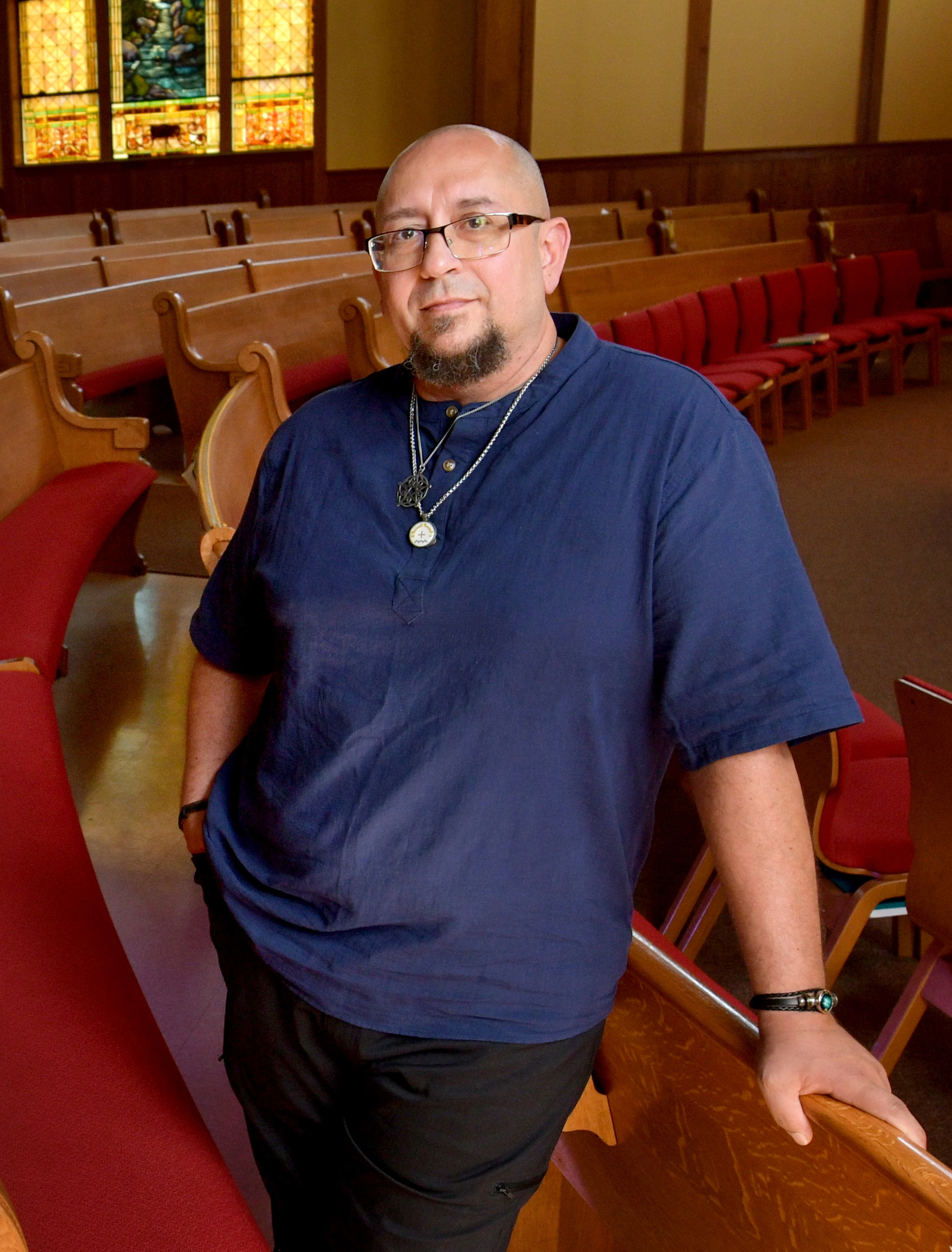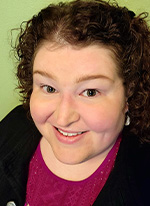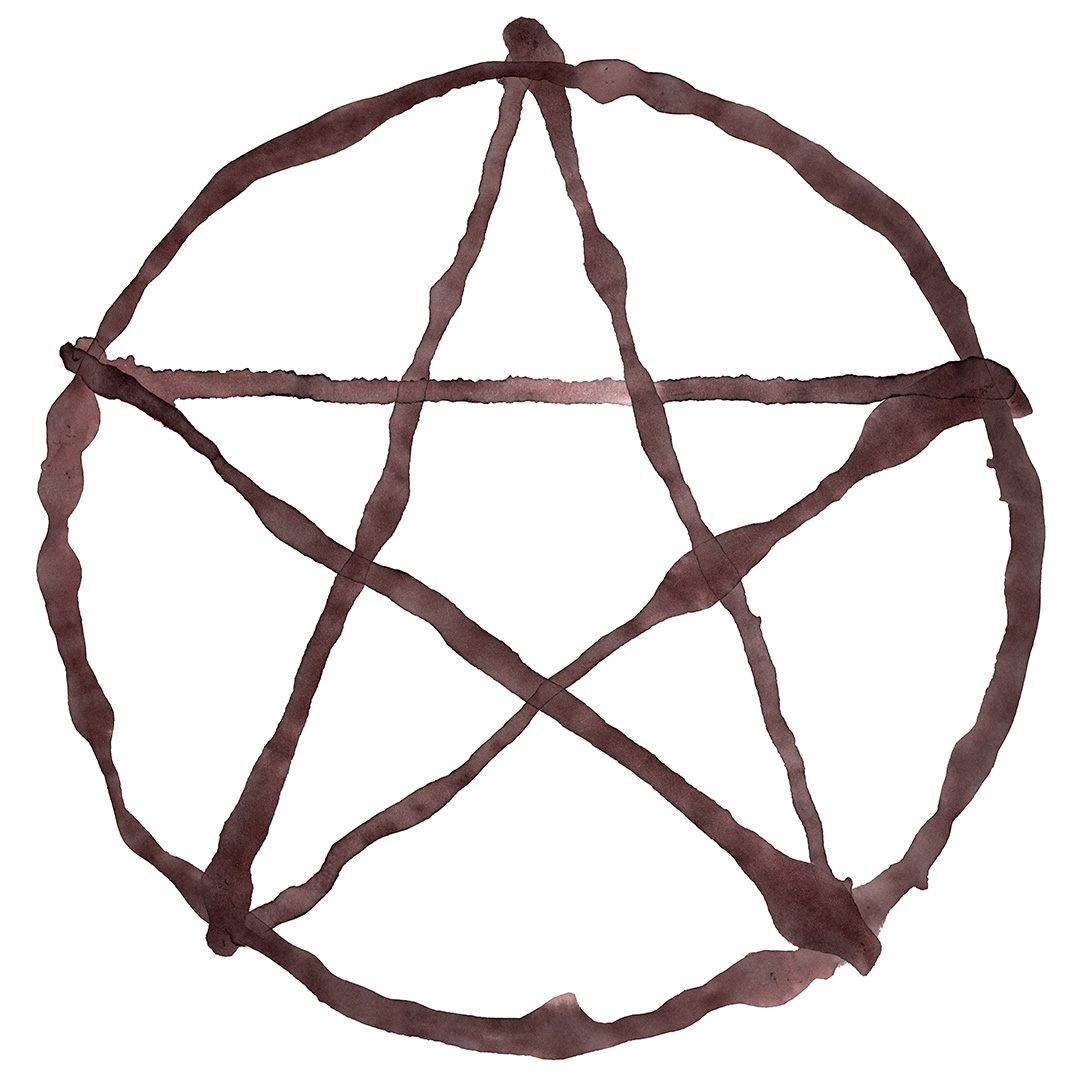Local pagans take all comers while retiring myths about their beliefs and looking to create a sense of community
Merriam-Webster’s Dictionary defines “paganism” as the spiritual beliefs and practices of ancient, polytheistic religions. The term “pagan” was first used around the fall of the Roman Empire to describe those who held beliefs outside of the three major religions of Christianity, Judaism, or Islam. Today, a pagan is someone who follows a contemporary religion based on ancient practices.
Pagans don’t have a standard liturgy or dogma. They may worship several different gods, goddesses, or non-gendered deities, but most recognize nature as divine and follow some concept of “harm none.” The Pagan Federation says that modern pagans may have a reverence for supernatural elements or focus on home-based practices more than public worship.
Tony Huerta from the Great Grove chapter of the Covenant Unitarian Universalist Pagans (CUUPS) said that the Peoria area certainly has its share of pagans.

“There’s a lot more of us around here than you would think,” he said. “There’s nurses and there’s school bus drivers, and there’s factory workers and there’s high-ranking members of the military that are pagan. So anytime you go into any kind of pagan gathering, it could be like walking into anywhere as far as who you should expect to meet.”
Building a protective community
Huerta is a moderator on the Pagans of Peoria Facebook group, an active place where local pagans can network and celebrate their spirituality. The group holds four sabbats, or religious celebrations per year.
Huerta personally has been practicing Wicca for 31 years, is part of the Correllian Nativist tradition, and worships in connection with the Unitarian Universalist Church in Peoria. He stresses that the Facebook group is for local pagans from all paths and affiliations. Group members are encouraged to ask questions. Group posts can be about sharing resources, offering support, or inviting others to community events.
A recent post invited members to a workshop being given by Bloomington CUUPS member Sean-Thomas Gunnell on non-binary deities from ancient and modern religions. Gunnell has been pagan since the age of 15 and has been involved in pagan communities from Memphis to Peoria. The now 50-something Gunnel appreciates the community the Pagans of Peoria group offers.
“I will tell you that most pagans overall are solitary practitioners. Most will not go to be part of a group or anything unless there’s a major holiday ritual,” said Gunnell, who uses the CUUPS and Pagans of Peoria presence to offer central Illinois pagans a feeling of safety and inclusivity within a larger group.
‘What you are thinking you may encounter is in fact not what you’re going to see’
— Tony Huerta
“I don’t exclude any aspects of the divine that you may work with. I invite people to come and be a part of [worship]. We do that through chanting. We do that through singing. We do that through movement. We do that sometimes through sharing with food and stuff like that. I want my rituals to be participatory.”
Rather than compete for members, Peoria’s Great Grove chapter and Bloomington’s ManyPaths chapter of CUUPS have worked together on rituals, workshops and potlucks. Huerta and Gunnell both express a belief that sharing of information and meaningful experiences make the community stronger overall.
That’s part of why CUUPS was established as an independent affiliate of the Unitarian Universalist Association in 1987. The church wanted to honor goddess-based, earth-centered, tribal and pagan spiritual paths by offering networking, outreach and educational opportunities to pagan-identifiying Unitarians.
‘Pagans are welcome here … just as Christians are’
“The Covenant of Unitarian Universalist Pagans has been around for a while,” said Jesi Laughlin, director of Lifespan Religious Education at the Universalist Unitarian Church of Peoria. “We keep [pagan] as a very broad term, a big umbrella encompassing everything from native cultures to goddess worship to Wicca to earth-based religions. It’s been a pretty natural path for UUs to say well, yes, pagans are welcome here just as Christians are welcome here, and Muslims are welcome here.“
Huerta notes that pagans may have personal reasons for mistrusting churches, but that the UU church holds similar values to many pagan paths. Gunnell adds that the Unitarian Universalist church offers a recognizable name for pagans who may be concerned about safety when connecting with strangers.
“This is a place that [pagans] could come in and be surrounded by people of more than their own faith,” said Huerta. “I hope that that’s what more people in the pagan community kind of understand about this place. At this particular place, there is nothing that they have to hide about who they are. I will be here in Sunday services every week, and I’ve got a pentagram hanging out of my shirt and it’s accepted.”
The Peoria CUUPS chapter holds sabbaths throughout the year. The celebrations range from religious worship with a diverse congregation interested in learning a new form of spirituality to smaller potluck socials for a primarily pagan audience. CUUPS events are posted in the Pagans of Peoria Facebook Group.
“Just to kind of reiterate, if there is anybody that’s in the pagan community that is reading this article, don’t let the word ‘church’ bar you from coming to see what we’re doing here, what we’re about, what CUUPS is about and what the UU is about, as well,” said Huerta. “Because what you are thinking you may encounter is in fact not what you’re going to see here. You’re going to see something that’s going to make you feel like home.”
To learn more about Pagans of Peoria, visit www.facebook.com/groups/648614921834845. To learn more about CUUPS, visit www.cuups.org.





